Jordan Bates • • 10 min read
18 Rare Friedrich Nietzsche Quotes to Make You Question Everything
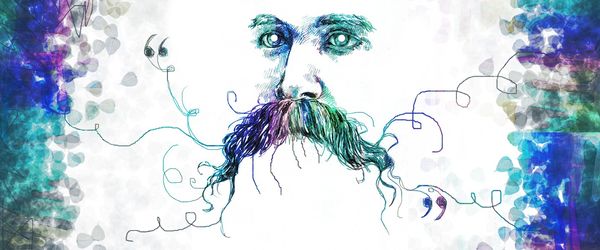
Friedrich Nietzsche is one of the most misinterpreted philosophers the world has ever seen.
His incomparable, fierce literary style and tenacious will to question all orthodox beliefs and institutions have captivated and perplexed readers for over a century.
I hesitate to share a list of quotations from his work, knowing full well that without the proper context, it is easy to misapprehend the full meaning and significance of his words. However, Nietzsche is also one of the most quotable writers who ever lived, and I think it is worth providing a sampling of some of his less commonly cited quotations here for a couple of reasons.
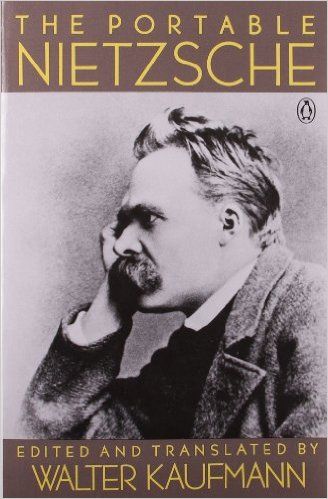
For one, those familiar with Nietzsche will probably find something illuminating in this collection that they would be unlikely to come across elsewhere online. And, for those unfamiliar, this collection will hopefully provide a fine appetizer of Nietzsche’s inimitable personality and paradigm-incinerating ideas.
In either case, the hope is that this collection will inspire readers to seek out the books from which these quotes were taken, in order to gain a fuller understanding of Nietzsche’s profound view of the world. Most all of these quotes were found in my copy of The Portable Nietzsche (the Walter Kaufmann translation), which I cannot recommend enough.
Now, contemplate and enjoy these quotes, but be warned: Nietzsche’s work can be dense and challenging! Let your mental muscle exert itself and resist the temptation to hastily form final opinions of the meanings of these sentiments. Keep in mind that this is but a glimpse into the beautiful and complex philosophy of a man who cannot be pinned down in a single blog post.
18 Rare Nietzsche Quotes
“And we should consider every day lost on which we have not danced at least once. And we should call every truth false which was not accompanied by at least one laugh.”
— Nietzsche, Thus Spoke Zarathustra

“How little it takes to make us happy! The sound of a bagpipe. Without music life would be a mistake. The German even imagines God as singing songs.”
— Nietzsche, Twilight of the Idols
These first two quotes showcase Nietzsche’s zeal for life, for cheer, for the ecstasy of artistic intoxication. This is a fitting place to begin, as it gives us a sense of the life-affirming essence of Nietzsche’s worldview: his supreme distaste for things which he saw as denying life, or diminishing one’s ability to affirm life. You will note the recurrence of this theme of opposition to all things life-denying in the remainder of this collection.
“Main thought! The individual himself is a fallacy. Everything which happens in us is in itself something else which we do not know. ‘The individual’ is merely a sum of conscious feelings and judgments and misconceptions, a belief, a piece of the true life system or many pieces thought together and spun together, a ‘unity’, that doesn’t hold together. We are buds on a single tree—what do we know about what can become of us from the interests of the tree! But we have a consciousness as though we would and should be everything, a phantasy of ‘I’ and all ‘not I.’ Stop feeling oneself as this phantastic ego! Learn gradually to discard the supposed individual! Discover the fallacies of the ego! Recognize egoism asfallacy! The opposite is not to be understood as altruism! This would be love of other supposed individuals! No! Get beyond ‘myself’ and ‘yourself’! Experience cosmically!”
― Nietzsche, Kritische Studienausgabe
“Being nationalistic in the sense in which it is now demanded by public opinion would, it seems to me, be for us who are more spiritual not mere insipidity but dishonesty, a deliberate deadening of our better will and conscience.”
— Nietzsche, Unpublished Note
These two sentiments of Nietzsche’s were unpublished in his lifetime and are particularly interesting, as they suggest just how far Nietzsche was willing to go in terms of rejecting what he saw as life-denying structures. The first quote suggests that he came to see the individual ego as something to be overcome along the path to the realization and affirmation of oneself as inseparable from the transpersonal force of the entire cosmos. The latter seems to suggest that he viewed excessive nationalism as a fallacious and limiting attitude that was not in harmony with deeper spiritual or ethical compulsions.
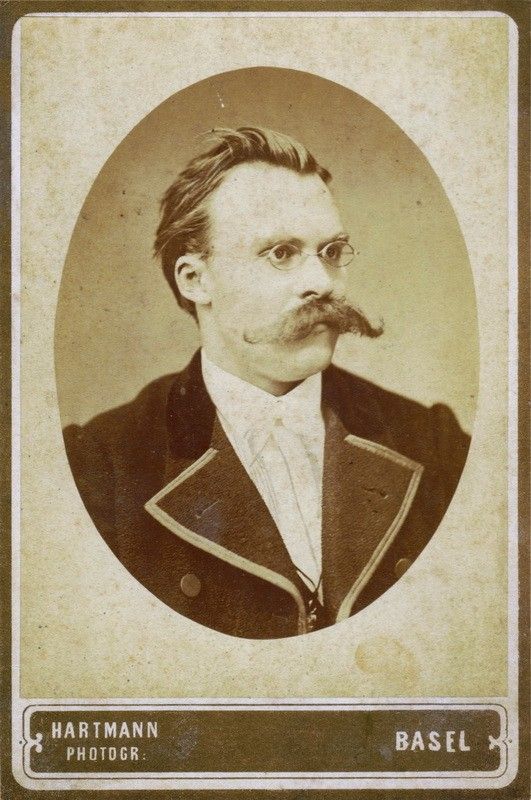
“. . . This is the mistake which I seem to make eternally, that I imagine the sufferings of others as far greater than they really are. Ever since my childhood, the proposition ‘my greatest dangers lie in pity’ has been confirmed again and again. . . .”
― Nietzsche, 1884 letter
“. . . It seems to me that a human being with the very best of intentions can do immeasurable harm, if he is immodest enough to wish to profit those whose spirit and will are concealed from him. . . .”
― Nietzsche, 1885 letter
“Christianity is called the religion of pity. Pity stands opposed to the tonic emotions which heighten our vitality! It has a depressing effect. We are deprived of strength when we feel pity. That loss of strength which suffering as such inflict on life is still further increased and multiplied by pity. Pity makes suffering contagious. Under certain circumstances, it may engender a total loss of life and vitality out of all proportion to the magnitude of the cause…”
— Nietzsche, The Antichrist
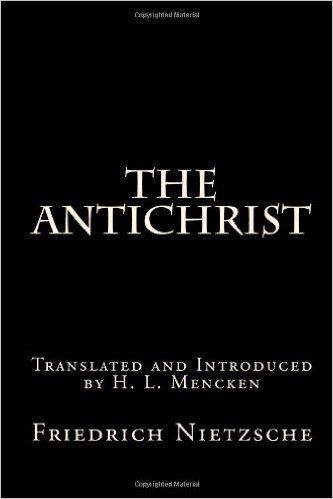
“Some have dared to call pity a virtue (in every noble ethic it is considered a weakness); and as if this were not enough, it has been made the virtue, the basis and source of all virtues. To be sure—and one should always keep this in mind—this was done by a philosophy that was nihilistic and had inscribed the negation of life upon its shield. Schopenhauer was consistent enough: pity negates life and renders it more deserving of negation.
Pity is the practice of nihilism. To repeat: this depressive and contagious instinct crosses those instincts which aim at the preservation of life and at the enhancement of its value. It multiplies misery and conserves all that is miserable, and is thus a prime instrument of the advancement of decadence: pity persuades men to nothingness!”
— Nietzsche, The Antichrist
“The decrease in instincts which are hostile and arouse mistrust—and that is all our ‘progress’ amounts to—represents but one of the consequences attending the general decrease in vitality: it requires a hundred times more trouble and caution to make so conditional and late an existence prevail. Hence each helps the other; hence everyone is to a certain extent sick, and everyone is a nurse for the sick. And that is called ‘virtue.’ Among men who still knew life differently—fuller, more squandering, more overflowing—it would have been called by another name: ‘cowardice’ perhaps, ‘wretchedness,’ ‘old ladies’ morality.'”
— Nietzsche, Twilight of the Idols
“Self-interest is worth as much as the person who has it: it can be worth a great deal, and it can be unworthy and contemptible. Every individual may be scrutinized to see whether he represents the ascending or the descending line of life. Having made that decision, one has a canon for the worth of his self-interest. If he represents the ascending line, then his worth is indeed extraordinary―and for the sake of life as a whole, which takes a step farther through him, the care for his preservation and for the creation of the best conditions for him may even be extreme.”
― Nietzsche, Twilight of the Idols
The previous six quotes challenge our common conceptions of self-interest versus altruism. Nietzsche was obsessed with the idea that the people of his time unquestioningly assumed that pity and altruism are always “good,” when in fact the truth is much more complex.
Nietzsche thought excessive pity could cripple the subject who felt it, and that an altruistic attitude could actually be quite destructive, if one had the hubris to assume that one actually knew what was best for another person. Self-interest was often decried as sinful in his time, but Nietzsche felt that for the truly life-affirming individual, being self-interested — in the sense of being true to one’s deepest compulsions and truest values — was precisely the best way to honor the spirit of life. Intriguingly, Nietzsche seems to have seen self-interest as a necessary phase on the path to eventual self-overcoming.
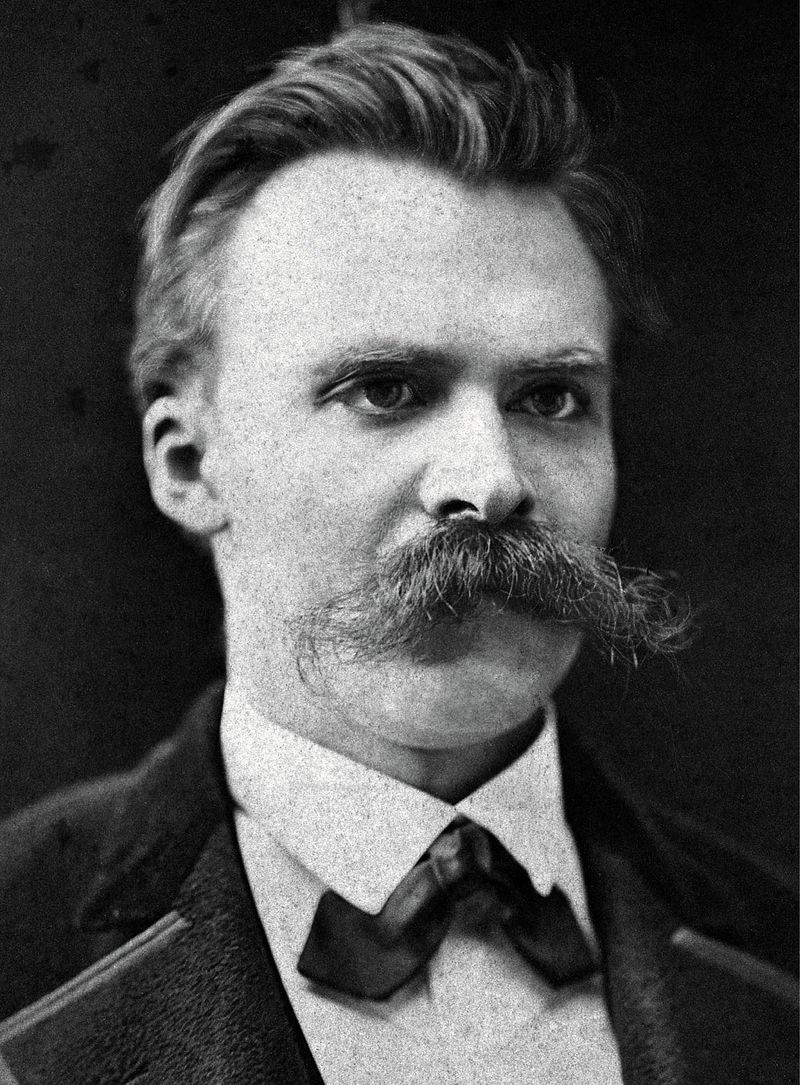
“In some remote corner of the universe, poured out and glittering in innumerable solar systems, there once was a star on which clever animals invented knowledge. That was the haughtiest and most mendacious minute of ‘world history’―yet only a minute. After nature had drawn a few breaths the star grew cold, and the clever animals had to die.
One might invent such a fable and still not have illustrated sufficiently how wretched, how shadowy and flighty, how aimless and arbitrary, the human intellect appears in nature. There have been eternities when it did not exist; and when it is done for again, nothing will have happened. For this intellect has no further mission that would lead beyond human life. It is human, rather, and only its owner and producer gives it such importance, as if the world pivoted around it. But if we could communicate with the mosquito, then we would learn that it floats through the air with the same self-importance, feeling within itself the flying center of the world.”
― Nietzsche, On Truth and Lie in an Extra-Moral Sense
“Judgments, judgments of value, concerning life, for it or against it, can, in the end, never be true: they have value only as symptoms, they are worthy of consideration only as symptoms; in themselves such judgments are stupidities. One must by all means stretch out one’s fingers and make the attempt to grasp this amazing finesse, that the value of life cannot be estimated.“
— Nietzsche, Twilight of the Idols
The above two quotes are indicative of Nietzsche’s sense that mankind was far too arrogant in assuming it was possible to gain any final knowledge or to make any ultimate value judgments about life. For Nietzsche, value and truth were always relative to the individual doing the supposing. He even went further still, questioning whether truth was valuable in the first place — why not untruth?

“In science, convictions have no rights of citizenship, as is said with good reason. Only when they decide to descend to the modesty of a hypothesis, of a provisional experimental point of view, of a regulative fiction, maybe they be granted admission and even a certain value within the realm of knowledge—though always with the restriction that they remain under police supervision, under the police of mistrust. But does this not mean, more precisely considered, that a conviction may obtain admission to science only when it ceases to be a conviction? Would not the discipline of the scientific spirit begin with this, no longer to permit oneself any convictions? Probably that is how it is. But one must still ask whether it is not the case that, in order that this discipline could begin, a conviction must have been there already, and even such a commanding and unconditional one that it sacrificed all other convictions for its own sake. It is clear that science too rests on a faith; there is no science ‘without presuppositions.’ The question whether truth is needed must not only have been affirmed in advance, but affirmed to the extent that the principle, the faith, the conviction is expressed: ‘nothing is needed more than truth, and in relation to it everything else has only second-rate value.'”
— Nietzsche, The Gay Science
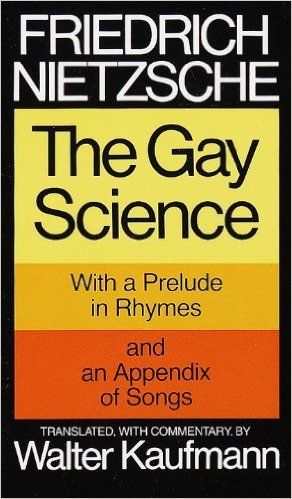
“Consequently, ‘will to truth’ does not mean ‘I will not let myself be deceived’ but—there is no choice—’I will not deceive, not even myself’: and with this we are on the ground of morality. For one should ask oneself carefully: ‘Why don’t you want to deceive?’ especially if it should appear—and it certainly does appear—that life depends on appearance; I mean, on error, simulation, deception, self-deception; and when life has, as a matter of fact, always shown itself to be on the side of the most unscrupulous polytropoi. Such an intent charitably interpreted, could perhaps be a quixotism, a little enthusiastic impudence; but it could also be something worse, namely, a destructive principle, hostile to life. ‘Will to truth’—that might be a concealed will to death.”
— Nietzsche, The Gay Science
The above two passages, which occur in close succession in The Gay Science, reflect the fact that Nietzsche went as far as to question the value of truth-seeking as an activity. Man manages to live only because of immense self-deception, Nietzsche thought, so the act of seeking the capital-T truth might ultimately be another covert form of life-denial.
The final four quotes in this collection are miscellaneous, not connected by any apparent theme, except perhaps the theme of how to live in such a way so as to affirm life. I hope you will enjoy soaking in these final sentiments, and I thank you for taking the time to read this collection and to gain insight into the illustrious mind of Friedrich Nietzsche.
“The means by which Julius Caesar defended himself against sickliness and headaches: tremendous marches, the most frugal way of life, uninterrupted sojourn in the open air, continuous exertion—these are, in general, the universal rules of preservation and protection against the extreme vulnerability of that subtle machine, working under the highest pressure, which we call genius.”
— Nietzsche, Twilight of the Idols

“To die proudly when it is no longer possible to live proudly. Death freely chosen, death at the right time, brightly and cheerfully accomplished amid children and witnesses: then a real farewell is still possible, as the one who is taking leave is still there; also a real estimate of what one has achieved and what one has wished, drawing the sum of one’s life—all in opposition to the wretched and revolting comedy that Christianity has made of the hour of death. One should never forget that Christianity has exploited the weakness of the dying for a rape of the conscience; and the manner of death itself, for value judgments about man and the past.”
— Nietzsche, Twilight of the Idols
“If there is to be art, if there is to be any aesthetic doing and seeing, one physiological condition is indispensable: frenzy. Frenzy must first have enhanced the excitability of the whole machine; else there is no art. All kinds of frenzy, however diversely conditioned, have the strength to accomplish this: above all, the frenzy of sexual excitement, this most ancient and original form of frenzy.”
— Nietzsche, Twilight of the Idols
“Rule? Press my type on others? Dreadful. Is not my happiness precisely the sight of many who are different? Problem.”
— Nietzsche, Unpublished Note
Did you know Nietzsche developed a philosophy of self-overcoming which he called his “gymnastics of the will”? It’s true. Our new course was inspired by this concept.

Jordan Bates
Jordan Bates is a lover of God, father, leadership coach, heart healer, writer, artist, and long-time co-creator of HighExistence. — www.jordanbates.life


![Seneca’s Groundless Fears: 11 Stoic Principles for Overcoming Panic [Video]](/content/images/size/w600/wp-content/uploads/2020/04/seneca.png)







